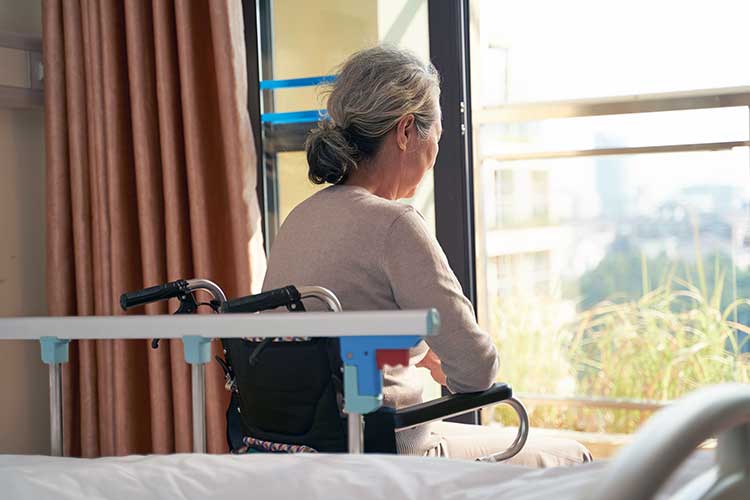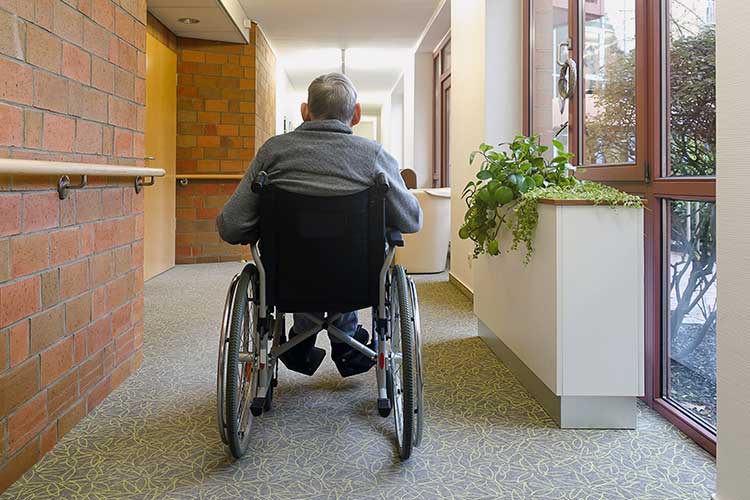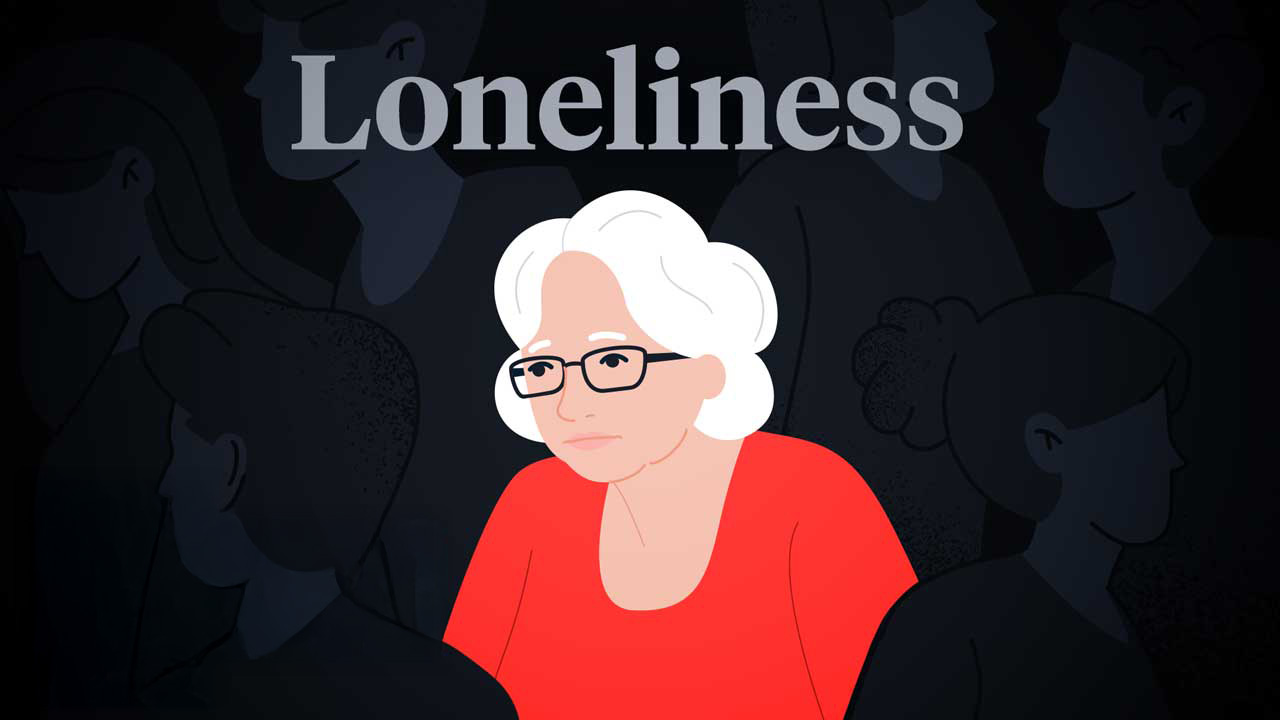About 16% of older Australians aged over 65 experience loneliness, and 11% are socially isolated (AIHW 2024).
Living in a residential aged care facility can potentially contribute to these feelings of loneliness and social isolation (Neves et al. 2019).
Loneliness and social isolation are associated with poor physical and mental health, with research even suggesting they may increase the risk of premature death as much as obesity, smoking and physical inactivity (CDC 2021).
Ensuring that your residents feel adequately supported and connected is essential to optimising their health, wellbeing and overall quality of life.
Loneliness v Social Isolation
- Social isolation is the objective state of being in minimal contact with other people.
- Loneliness is the subjective feeling that you have less companionship, social contact or quality relationships with other people than you would like.
(AIHW 2024; Beyond Blue 2018)
Loneliness and social isolation can coexist; however, this is not always the case. These two terms, while similar, are distinct. It is possible for a socially isolated person to feel content or a socially connected person to feel lonely (AIHW 2024).
While loneliness may arise as an emotional response to being socially isolated, the quality of relationships seems to be more important overall than the number of social connections a person has (ACSA 2015).
It is important to note that loneliness varies in severity and is not always a significant issue. In some cases, the feelings may pass on their own. However, if an individual is experiencing constant loneliness that is causing self-reinforcing negative thoughts, this might be a serious problem (ACSA 2015).

Loneliness and Social Isolation Under the Strengthened Aged Care Quality Standards
Standard 7: The Residential Community - Outcome 7.1: Daily living under the strengthened Aged Care Quality Standards (Action 7.1.1) requires aged care providers to support and enable older people to do what they want to do, including decreasing boredom and loneliness, fostering connections with others, participating in activities outside the residential community and maintaining social and personal relationships (ACQSC 2024).
Causes of Loneliness and Social Isolation in Older People
There are a variety of factors that may contribute to loneliness and social isolation in older adults, including:
| Physical risk factors |
|
| Social risk factors |
|
| Emotional risk factors |
|
| Lifestyle risk factors |
|
| Personal risk factors |
|
(Seasons 2017; Beyond Blue 2018; CDC 2021; AIHW 2017; ASCA 2015)
How Does Aged Care Contribute to Loneliness and Social Isolation?
Living in a residential aged care facility can present unique challenges that may contribute to loneliness and social isolation. These include:
- Feeling the need to conform to rules or expectations related to age
- Feeling self-conscious about displaying certain emotions in fear of a negative reaction
- Staff, family and other residents dismissing feelings and experiences of loneliness, leading to embarrassment and stigmatisation
- Negative emotions being dismissed or redirected to positive topics by staff and family
- Difficulty maintaining identity and sense of self while simultaneously trying to avoid stigmatisation or being viewed as a burden
- Feeling pressure to be a ‘good citizen’, participate in activities and follow the social expectations of the facility
- Lack of autonomy due to institutionalisation
- Lack of regular contact with family and friends
- Dependency
- Daily life being routinised
- Alienation from other residents.
(Neves et al. 2019)

The Impacts of Loneliness and Social Isolation
Loneliness and social isolation may have a variety of adverse effects, including:
- An increased risk of:
- Premature mortality
- Dementia
- Heart disease
- Stroke
- Depression, anxiety or suicide
- Hospitalisation
- Presentation to the emergency department
- Chronic pain
- Physical frailty
- Terminal illness
- Obesity
- High blood pressure
- Poor social relationships
- Increased care needs
- Reduced independence
- Reduced social participation
- Social exclusion
- Low social engagement
- Breakdown in relationships
- Decreased feeling of wellbeing
- Psychological distress
(CDC 2021; Beyond Blue 2018; Neves et al. 2019; AIHW 2024)
Overcoming Loneliness in Aged Care
As previously mentioned, the quality of a person’s relationships is more important than the number of social connections they have. Therefore, helping residents develop meaningful relationships with others may be more effective in overcoming loneliness than simply facilitating interactions with many people (ACSA 2015).
The following are some strategies that may help residents overcome loneliness:
- Involving residents in the planning, delivery and evaluation of activities
- Facilitating meaningful interaction with familiar people (e.g. family)
- Facilitating programs that allow residents to strengthen their existing relationships and interests
- Allowing residents to choose what activities they participate in and when
- Allowing residents to express their opinions and choices
- Facilitating activities that allow residents to take an active role in society
- Facilitating activities that encourage a healthy lifestyle
- Facilitating programs that help improve function and mobility
- Facilitating interactions with people of different ages and backgrounds, and pets
- Facilitating meaningful activities that help others (e.g. volunteering)
- Managing physical and mental chronic health conditions
- Providing the means for residents to connect with others through social media, letters, email and phone calls
- Ensuring the service environment is age-friendly (e.g. rest areas, accessibility, green areas, safe design)
- Individualising these strategies for each resident.
(ACSA 2015)

Conclusion
Loneliness and social isolation have the potential to cause significant adverse effects on a person’s physical and mental health. In order to ensure your residents feel well-connected, it is important to understand why loneliness may arise and know how to help them overcome these feelings.
Keep in mind that interventions should be tailored to suit each resident, as loneliness is a subjective and individual experience that cannot be addressed using a one-size-fits-all approach (Fakoya et al. 2020).
Test Your Knowledge
Question 1 of 3
Which one of the following is not a cause of loneliness and social isolation in older people?
Topics
Further your knowledge

 Free
FreeReferences
- Aged Care Quality and Safety Commission 2024, Standard 7: The Residential Community, Australian Government, viewed 1 July 2024, https://www.health.gov.au/resources/publications/strengthened-aged-care-quality-standards-august-2025?language=en/residential-community
- Aged and Community Services Australia 2015, Social Isolation and Loneliness Among Older Australians, ACSA, viewed 1 July 2024, https://web.archive.org/web/20200301060303/https://www.acsa.asn.au/getattachment/Publications-Submissions/Social-Isolation-and-Loneliness/1015-Social-Isolation-and-Loneliness-Paper.pdf.aspx?lang=en-AU
- Australian Institute of Health and Welfare 2017, Australia’s Welfare 2017: 5.1 Ageing and Aged Care, Australian Government, viewed 1 July 2024, https://www.aihw.gov.au/getmedia/d18a1d2b-692c-42bf-81e2-47cd54c51e8d/aihw-australias-welfare-2017-chapter5-1.pdf.aspx
- Australian Institute of Health and Welfare 2024, Social Isolation and Loneliness, Australian Government, viewed 28 June 2024, https://www.aihw.gov.au/mental-health/topic-areas/social-isolation-and-loneliness
- Beyond Blue 2018, Connections Matter: Helping Older People Stay Socially Active, Beyond Blue, viewed 28 June 2024, https://edge.sitecorecloud.io/beyondblue1-beyondblueltd-p69c-fe1e/media/Project/Sites/beyondblue/PDF/Resource-Library/Older-adults/408362_0318_bl1366_hrnt.pdf?sc_lang=en
- Centers for Disease Control and Prevention 2021, Loneliness and Social Isolation Linked to Serious Health Conditions, U.S. Department of Health & Human Services, viewed 28 June 2024, https://www.cdc.gov/aging/publications/features/lonely-older-adults.html
- Fakoya, OA, McCorry, NK & Donnelly, M 2020, ‘Loneliness and Social Isolation Interventions for Older Adults: A Scoping Review of Reviews’, BMC Public Health, vol. 20 no. 129, viewed 1 July 2024, https://bmcpublichealth.biomedcentral.com/articles/10.1186/s12889-020-8251-6
- Neves, BB, Sanders, A & Kokanović, R 2019, ‘ “It's the Worst Bloody Feeling in the World”: Experiences of Loneliness and Social Isolation Among Older People Living in Care Homes’, Journal of Aging Studies, vol. 49, viewed 28 June 2024, https://bbneves.com/wp-content/uploads/2019/06/its-the-worst-bloody-feeling-in-the-world.pdf
- Seasons 2017, What is the Health Impact of Loneliness in Old Age?, Seasons, viewed 1 July 2024, https://seasonsliving.com.au/blog/what-is-the-health-impact-of-loneliness-in-old-age/
 New
New 
